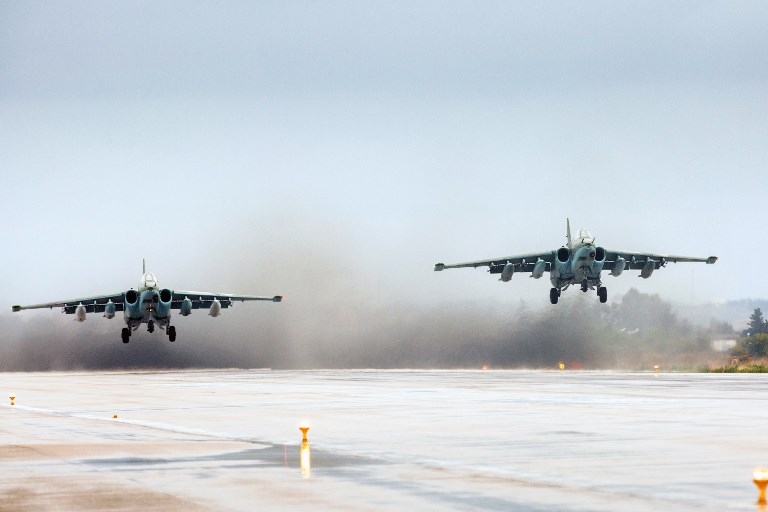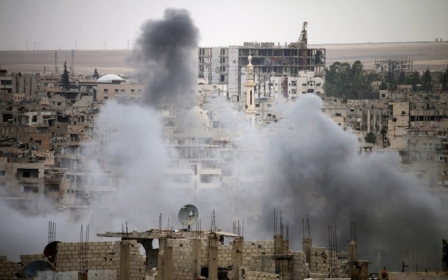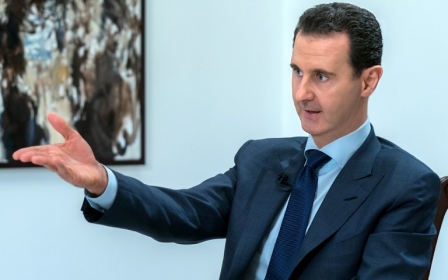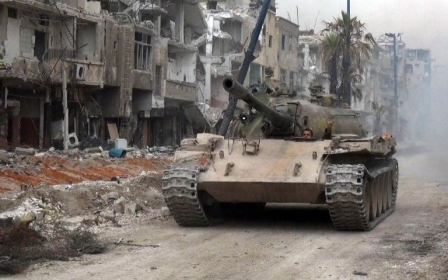First Russia air strikes hit southern Syria as government assault looms

Russia bombed rebel-held parts of southern Syria late on Saturday for the first time since brokering a ceasefire there nearly a year ago, a monitor group said, as allied government troops prepared a ground assault.
Southern Syria is a strategic prize for local and global players involved in the country's convoluted seven-year war.
After securing the capital Damascus, Syrian President Bashar al-Assad appears keen to recapture the southern provinces of Daraa and Sweida, still mostly held by rebels.
He has sent military reinforcements there for weeks, dropped flyers demanding rebels surrender and escalated bombardment in recent days.
Late Saturday night, his Russian allies bombed rebel-held towns in Daraa for the first time since the summer of 2017, said the Syrian Observatory for Human Rights.
"Intense Russian air strikes are hitting towns in Daraa's eastern countryside for the first time since the ceasefire was agreed in southern Syria last year," said Observatory head Rami Abdel Rahman.
The Observatory said the warplanes used Saturday - based on type, location, munitions and flight patterns - had come from the Russian-operated Hmeimim base in coastal Syria.
The Britain-based monitor said at least 25 Russian strikes hit the rebel zones, but did not have any casualty figures.
The United States on 21 June reiterated its demand that the ceasefire zone be respected, warning Assad and his Russian allies that violations would have "serious repercussions" and accusing Damascus of initiating air strikes, artillery and rocket attacks.
A big offensive risks an escalation that could draw the US deeper into the war. Southwest Syria is of strategic concern to US ally Israel, which this year has stepped up attacks on Iran-backed militias allied with Assad.
Russia, the US and Jordan agreed in July of last year on the de-escalation zone in rebel-controlled parts of southern Syria that would tamp down hostilities there.
Since then, Moscow's warplanes - active in Syria since 2015 - had refrained from bombing rebel positions in the south.
Violence increases
But violence has been ratcheting up this week as Syrian government forces look to retake the south militarily.
Forces loyal to Assad began ramping up their air strikes and artillery fire on the zone on 21 June.
At least 19 civilians in rebel-held zones have died since then, according to the Observatory.
Several civilians were also killed in opposition fire on government zones, with state news agency SANA reporting on Saturday that two civilians died in Daraa city from rebel shelling.
About 12,000 people have been displaced from Daraa province in recent days, the Observatory said, with many seeking refuge in poorly equipped displacement camps farther west.
The United Nations has warned that growing violence is putting the lives of 750,000 people in rebel parts of the south in danger.
On Saturday, Syrian government forces took two villages in Daraa province, the Observatory said.
UN Secretary-General Antonio Guterres called on 22 June for an immediate end to the military escalation in southwestern Syria, saying he was "concerned at the significant risks these offensives pose to regional security," Haaretz reported.
Guterres was scheduled to hold talks on Saturday in Washington, DC with US Secretary of State Mike Pompeo, Haaretz said.
"The Russian strikes started around 10:30pm local time (1930 GMT) and stopped after midnight," said Ibrahim Mohammad, a media activist in the battered rebel town of Busr al-Harir in Daraa.
He said that he and other residents had taken to their basements and bomb shelters as soon as they heard the planes, describing a steady thud of bombardment for almost two hours.
In an effort to avoid a deadly offensive, international powers are holding talks aimed at reaching a negotiated settlement for Syria's south.
"All sides should seize the opportunity to negotiate a deal for the conditional return of the Syrian state to the southwest and avert a military conclusion that, for all sides and the local population, would be a worse outcome," wrote the International Crisis Group think tank last week.
"The US, Russia and Jordan, which brokered a southwestern ceasefire in 2017, should urgently extend that truce in preparation for a broader settlement," the report added.
Earlier this month, Assad said contacts were ongoing between Russia, the United States and Israel over the southern front.
"We are giving the political talks a chance, but if they fail, there will be no choice but liberation by force," he said.
The government has retaken large parts of Syria from the opposition since Russia intervened militarily on its side in 2015.
New MEE newsletter: Jerusalem Dispatch
Sign up to get the latest insights and analysis on Israel-Palestine, alongside Turkey Unpacked and other MEE newsletters
Middle East Eye delivers independent and unrivalled coverage and analysis of the Middle East, North Africa and beyond. To learn more about republishing this content and the associated fees, please fill out this form. More about MEE can be found here.




